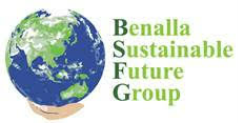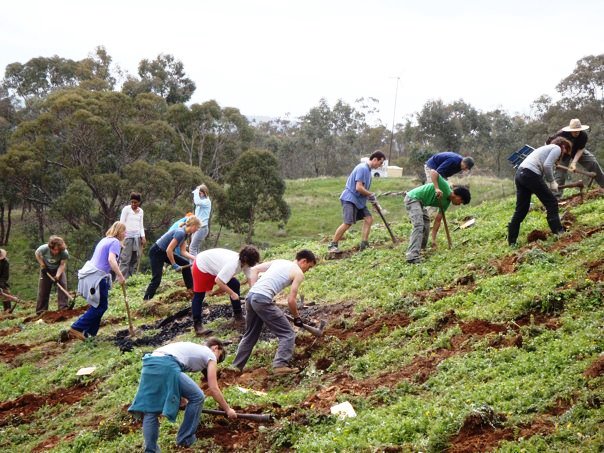Bio-diversity
|
Human beings depend for their sustenance, health, well-being and enjoyment of life on biodiversity. We derive all of our food and many medicines and industrial products from the wild and domesticated components of biological diversity. Biodiversity is the basis for much of our recreation and tourism, and includes the ecosystems which provide us with many services such as clean water.
Biodiversity has been described as the ‘web of life’, ‘the variety of living things’ or ‘the different plants, animals and micro-organisms, their genes and ecosystems of which they are a part’. Biodiversity encompasses every living thing that exists on our planet and the environment in which they live. From the smallest one-cell microbe to the enormous majesty of the blue whale. From the depths of the Pacific Ocean to peaks of our tallest mountains, biodiversity forms part of an intricate and interdependent web of life in which we are all a part. |
.
Australia is home to between 600,000 and 700,000 species, many of which are found nowhere else in the world. About 84 per cent of our plants, 83 per cent of our mammals, and 45 per cent of our birds are endemic — that is, they are only found in Australia.
The marine environment is home to thousands of marine species, some of which are unique to Australia and all of which contribute to making Australia the most biodiversity-rich developed country in the world. This includes at least 45 species of whales, dolphins and porpoises.
The marine environment is home to thousands of marine species, some of which are unique to Australia and all of which contribute to making Australia the most biodiversity-rich developed country in the world. This includes at least 45 species of whales, dolphins and porpoises.
How can I help protect biodiversity?
- Create a natural habitat in your backyard or on your farm.
- Look at plants that are native to your region and help create a backyard sanctuary for local birds and wildlife. Plants native to the Benalla area are included in the booklet Native Vegetation of the Goulburn Broken Riverine Plains.
- If you are farming and haven't done so already, consider regenerative farming processes; protecting dams to maximise/retain biodiversity; becoming a member of your local land care group. Regional publications such as 'The Ground Story' provide an important and practical reminder of the need
- Get rid of weeds. Perfectly harmless plants can turn into a noxious weed if they jump your back fence and head into bushland. Check out what's considered a weed in the Benalla area at Weeds in Australia. Some weeds identified in Benalla include - Bridal Creeper, Horsetails (Equisetum species), Stinkwort, Sweet Briar, Chilean Needle Grass. Find out more at https://www.benalla.vic.gov.au/Your-Property/Noxious-Weeds . Download Weeds of the Goulburn Broken (terrestrial and aquatic)
- Support local biodiversity initiatives including citizen science projects and bird watching recordkeeping. Examples in Benalla include the the Regent Honey Eater Project; Australian Platypus Conservancy monitoring project; Friends of Winton Wetlands (activities include an annual Spring Nest Box survey; the Turtles Australia project and biodiversity projects of local land care groups. Contact details for a number of local biodiversity related Environment and Conservation Action Groups are listed at https://www.benallaservices.com.au/subcategory/environment_and_conservation_action_groups
- Follow up land care initiatives which help to improve biodiversity, including introducing farm dam enhancements which support bio diversity -https://www.sustainablefarms.org.au/article/farm-dam-enhancement
- Reduce, reuse and recycle. Look at ways to reduce the amount of rubbish that ends up in landfill and the waterways. Many things can now be recycled. For more information on what you can recycle in your local area go to Recycling Near You (link is external) or Waste and recycling Local recycling information?
- Understand Benalla's composting bin system, or even start your own compost bin. Organic matter like vegetable peelings are great for your garden. Start composting and you can reduce the need for chemicals and fertilizers in the garden and improve the health of your soil. Local Green Bin information:
- Only put water down the drains. Things like oils and chemicals may start at the kitchen sink but end up in our waterways and seas and can affect animals and plants living in streams and rivers. Instead of using commercial cleaning chemicals try using white vinegar and bicarbonate of soda.
- Be a responsible pet and farm animal owner. If you can no longer keep your pets or farm animals do not release them into the wild. This includes pet fish — do not flush them down the toilet or put them into local streams. Make sure your cat is de-sexed and either keep it indoors or invest in an outdoor cat run — domestic cats can have a devastating effect on local wildlife. Our region also faces the devastating effects of wild dogs, wild pigs, and more.
- Be an informed seafood eater. Don’t eat threatened fish species. To find out what species you should avoid at the fish market go to Find a Fish — FishNames.com.au (link is external)
- Understand what you can and can’t take with you when you travel. Some tourist souvenirs and items you buy over the internet are made from or contain derivatives of plants and animals. If you are bringing plants or animals into or out of Australia, go to Information for travellers and online shoppers beforehand. Any local issues here?
- When you’re sailing, don't get too close to whales and dolphins.To find out more about how to help, go to Whales, dolphins and porpoises. Need to reframe this to relate to Benalla/local waterway issues...
- Keep up to date - listen to informed speakers including Bert Lobert from Our Strathbogie Forests at BSFG meetings; check out webinars and podcasts on the internet; view biodiversity related film screenings and speakers at the Swanpool Environmental Film Festival sponsored by BSFG, Swanpool Landcare and Gecko CLaN in June each year. Attend film screenings during the year auspiced by BSFG and DELWP such as 2040 in early 2020 or screened at BSFG general meetings, such as Bob Brown Foundations' Forest Freedom to be screened on Thursday 25 March at 7.30 at the Uniting Church.
- Be well informed on government policy - bookmark the list of biodiversity publications from the Federal Department of the Environment; What is the Australian Government doing to protect biodiversity?
About the Environment Protection and Biodiversity Conservation Act 1999
For more information on biodiversity and related programs go to Biodiversity.
Find out more about how you can help protect our biodiversity at environment.gov.au/biodiversity/biodiversity-month you’d like more information on biodiversity measures in Victoria, go to: Victoria(link is external)
"Join in local biodiversity projects"
The Regent Honey Eater Project works to protect, restore and connect significant remnants of native habitat in the Lurg Hills near Benalla. In 'Why I go treeplanting' by Chanaka (2018) documenting his experiences with the project.
*Source - Department of .... Bidoversity Month -...accessed 12 October 2020
Resources
- List of biodiversity publications Federal Department of the Environment
What is the Australian Government doing to protect biodiversity?
About the Environment Protection and Biodiversity Conservation Act 1999
For more information on biodiversity and related programs go to Biodiversity.
Find out more about how you can help protect our biodiversity at environment.gov.au/biodiversity/biodiversity-month
Biodiversity is everyone’s business and all Australians have a role to play in protecting our rich biodiversity.
As humans, we depend on biodiversity for sustenance, health, well-being and enjoyment of life.
Biodiversity is 'the web of life' and 'the variety of living things'. It's all around us.
It's in our bushland. It's in our waterways and oceans. It's in our towns and cities.
September is Biodiversity month.
Sustainability education is futures-oriented, focusing on protecting environments and creating a more ecologically and socially just world through informed action. Actions that support more sustainable patterns of living require consideration of environmental, social, cultural and economic systems and ..
About the Environment Protection and Biodiversity Conservation Act 1999
For more information on biodiversity and related programs go to Biodiversity.
Find out more about how you can help protect our biodiversity at environment.gov.au/biodiversity/biodiversity-month
Biodiversity is everyone’s business and all Australians have a role to play in protecting our rich biodiversity.
As humans, we depend on biodiversity for sustenance, health, well-being and enjoyment of life.
Biodiversity is 'the web of life' and 'the variety of living things'. It's all around us.
It's in our bushland. It's in our waterways and oceans. It's in our towns and cities.
September is Biodiversity month.
Sustainability education is futures-oriented, focusing on protecting environments and creating a more ecologically and socially just world through informed action. Actions that support more sustainable patterns of living require consideration of environmental, social, cultural and economic systems and ..
|
|
Benalla Sustainable Future Group acknowledges the traditional owners of the land on which we live, work and meet, the Taungerang, Yorta Yorta and Bpangerang people
of North East Victoria, and pay our respects to their elders past, present and emerging.
of North East Victoria, and pay our respects to their elders past, present and emerging.




